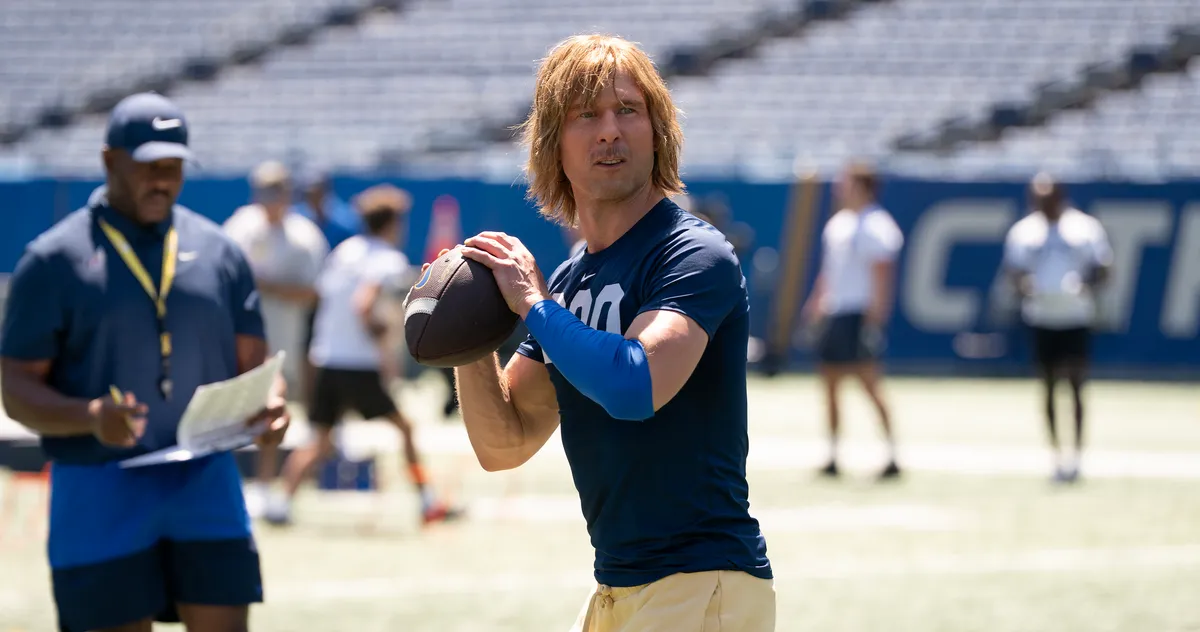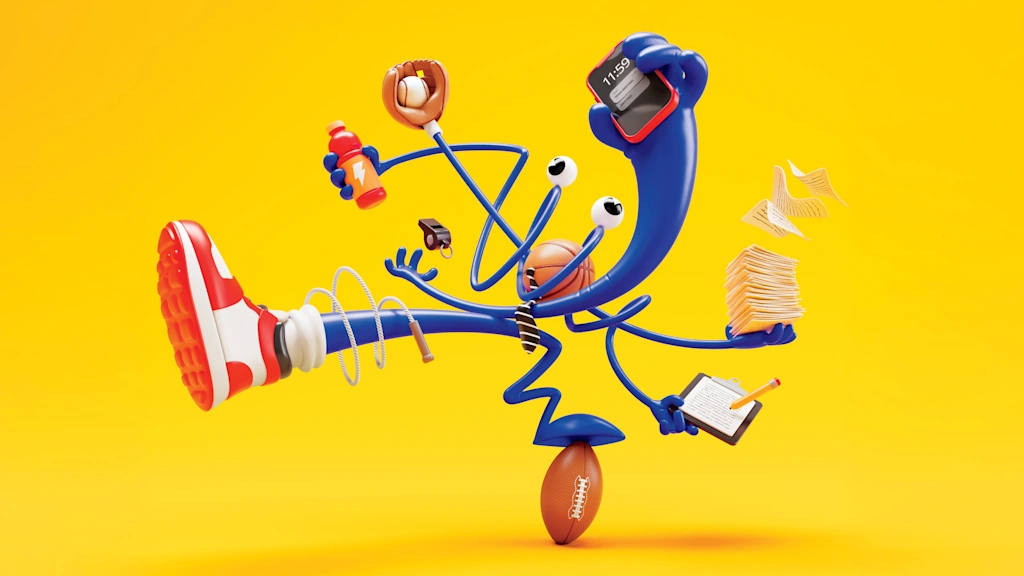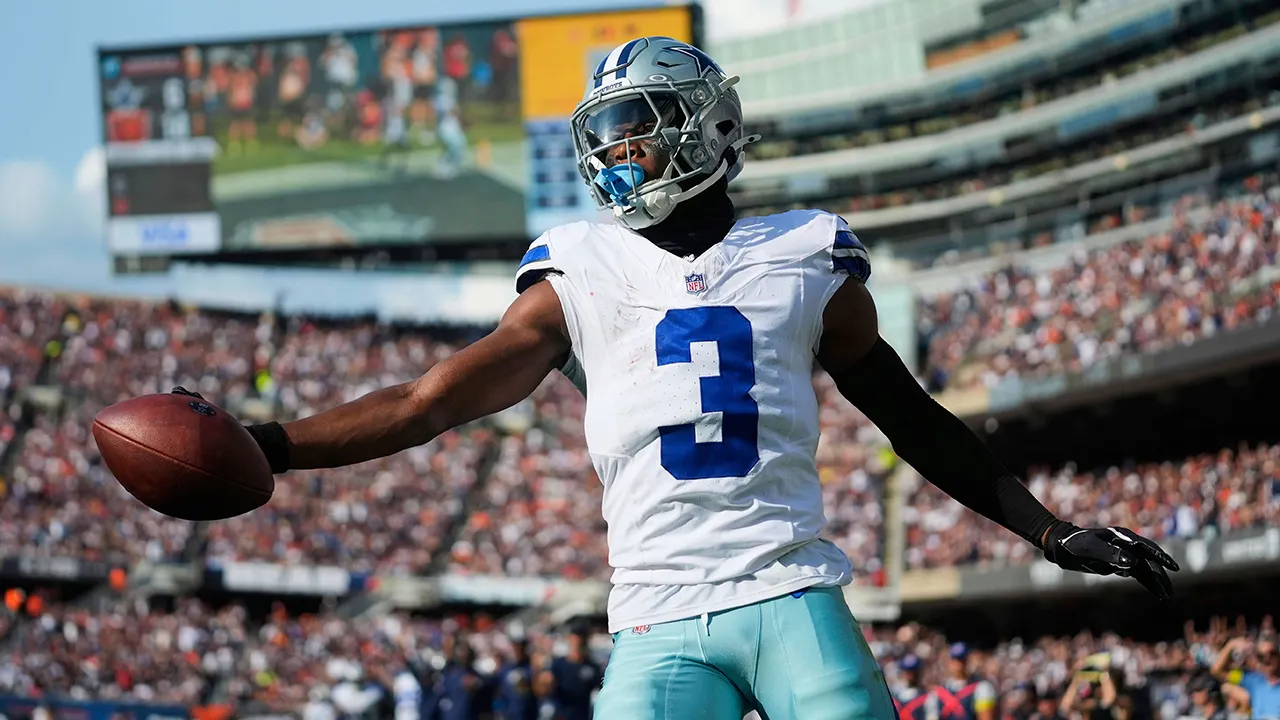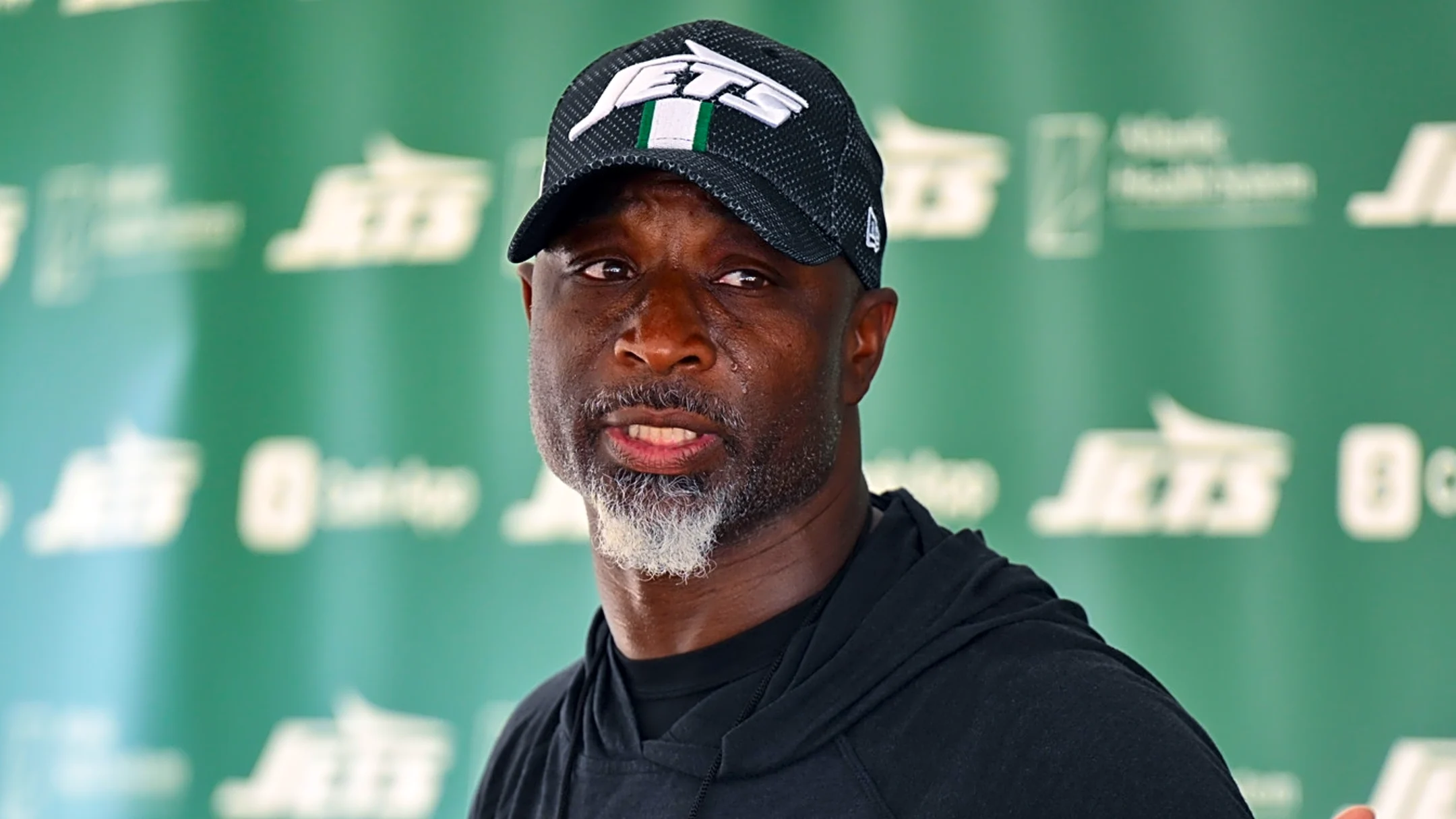
Chad Powers is what you get when the thinnest thread of a concept gets yes-anded into a streaming series. Just as Ted Lasso began life as a promo for NBC’s English Premier League coverage, Chad Powers crawled out of a gag on Eli’s Places, Eli Manning’s post-retirement ESPN+ program, in which the former Giants quarterback hides under prosthetics to pose as an aspiring Penn State walk-on. The bit went viral, which somehow qualifies it as a viable IP, and suddenly there’s a blueprint: Plug in a marquee name (Glen Powell), hand it to a capable showrunner (Loki’s Michael Waldron), and shove the product through Hulu’s pipes. This is what passes as development these days, and what comes out of the Chad Powers process is mostly lousy, a corporate exercise in content alchemy that plays like a coloring book where the outlines are already drawn. But I’ll be damned if there’s also a flicker of something real hiding beneath the junk. You just have to do a lot of squinting to see it.
The premise is the plot: Powell plays Russ Holiday, a disgraced University of Oregon star who blows a championship game so spectacularly that he’s blackballed from the pros. Washed up, tabloid fodder, and marinating in existential malaise, Russ begins the series as a finely observed jackass who drives a Cybertruck, dabbles in crypto, and flashes a diamond earring at the club. He’s convinced the universe is conspiring against him when a chance with the B-list XFL falls through, but he spies another way back with the fictional South Georgia Catfish, a struggling college-football program holding open tryouts. So he steals prosthetic materials from his Hollywood makeup-artist dad (Toby Huss), drives his Cybertruck off to Georgia, and tries to pass himself off as the mop-haired, puffy-cheeked Chad Powers.
What follows is a largely familiar jaunt recalling the well-trodden territory of Juwanna Mann, 21 Jump Street, She’s the Man, and even Never Been Kissed. Russ is aided in his duplicity by Danny (Frankie A. Rodriguez), the Catfish mascot who doubles as the requisite gay bestie after discovering Russ’s ruse. Weary head coach Jake Hudson (Steve Zahn) is facing pressure from Tricia (Wynn Everett), the very profane chair of the program (presumably the show’s red-state spin on Ted Lasso’s Hannah Waddingham character) and will do anything to turn the program around. His adult daughter, Rickie (Perry Mattfeld), is fighting to prove herself on staff despite being both a nepo baby and a woman. The questions are as familiar as the setup: Can Russ-as-Chad reclaim his glory? Can he save the Catfish? Can any of it happen without someone realizing who he really is?
Chad Powers largely hews to the familiar shape of a sports-underdog tale, so Chad’s ascent is never in doubt. He will make the team, he will win the game, and he might even get the girl. Ricky develops romantic feelings for Chad even though Russ plays him as a soft-spoken, possibly dim rural hick who may well be a literal man-child. The show must fulfill its meta-duties, so it will reference many other Disney properties for the purposes of glorious corporate synergy: Danny belts songs from Aladdin and Mulan, Catfish games are presented on ESPN, and Stephen A. Smith even makes a brief appearance. That sense of obligation bleeds into the writing, too, where tonally inconsistent jokes swing between outdated pop-culture snark (“You are just scrubba-dub-dub from the web like Hillary’s emails”) and jock-bro humor (Chad begs off the group shower by citing a dangerously large urethra; he later drops the R-word in a joke that easily could’ve been cut) that’s hard not to read as a groan-worthy campaign to bridge some perceived red-state-blue-state chasm.
And yet, with this much interesting talent packed into one team, Chad Powers doesn’t quite sink to the level of a garden-variety disaster. The show mostly obscures the pleasures of co-creator Powell’s heartland good looks because he spends so much time buried beneath prosthetics that make him look even more like a capybara, but his charisma still cuts through as a jackass fumbling toward decency in indecent circumstances. All six episodes are directed by Tony Yacenda, co-creator of American Vandal, Netflix’s whip-smart, underrated true-crime mockumentary about a high-school scandal involving faculty cars vandalized with dicks. Waldron, a Rick and Morty alum who’s built a career out of puckish, brain-bending storytelling, including a sensational first season of Loki that balanced solid character work with cosmic horror, lets Chad Powers gets weirder as it moves along, inching toward the unnerving questions that usually go ignored in double-identity comedies. How could Russ possibly sustain this ruse? What if he prefers being Chad Powers to being himself? What is he willing to sacrifice for whatever it is he’s chasing after? As if hinting toward the most logical endpoint of the premise, the script occasionally flirts with outright nihilism. “What’s happening?” Danny asks Russ-as-Chad when the latter is having a dark night of the soul. “Metamorphosis. I’m going to kill myself,” he replies in a singsong voice.
Stories like these usually lurch from one contrivance and complication to the next, but Chad Powers knots itself into a genuinely thorny conflict by the finale. Indeed, the last stretch builds to a confrontation so sharp, so acidic, that I actually paused and thought, Wait, was that a great scene? Am I losing my mind? And that’s the paradox of the show. Chad Powers is, for the most part, a cynical corporate experiment, engineered within an inch of its life, but in fleeting moments it threatens to transcend itself. That tension mirrors Russ’s own journey, where flashes of goodness hint he might rise above his history, and more importantly, the deceit he’s wrapped himself in. The question is whether those flickers are ever enough, or if he’s always doomed to the same truth: You can’t outmaneuver your true self, not even in disguise.



